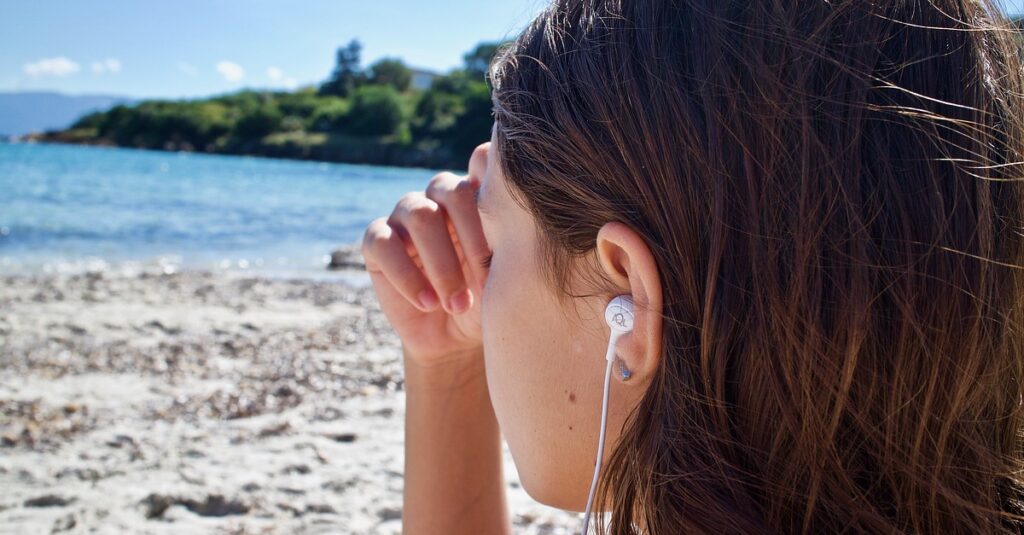

There is no reason to think that freediving causes migraines although it can cause other types of headaches. Make sure that you know the main causes of headaches after diving so that you can treat them appropriately. Some may be minor (e.g. an uncomfortable mask strap) but others more serious (e.g. ear or sinus squeeze). Seek medical attention if you experience a bad headache after free diving.
There is no evidence indicating that freediving increases the frequency or intensity of migraine attacks. Freediving might cause other types of headaches, including tension headaches, headaches from overnight masks etc.. You should not dive while you have a migraine. If prone to migraines, you should consult your doctor before diving and flag this issue to your diving instructor or diving buddy.
The True Story Book of Freediving Champion Audrey Mestre and the Story of Her Death
View on Amazon: The Last Attempt (Opens new tab)


Top rated read
Migraine is a condition usually characterized by recurrent headaches which can be accompanied or preceded by a variety of other symptoms including nausea, visual disturbances, gastrointestinal upset and limb weakness. If you experience migraines, you might be wondering whether freediving could exacerbate your condition or trigger a migraine. Our article tells you about freediving and headaches, including migraine, so that you can better understand possible issues and implications.
How do you relieve pressure in your head from diving?
You may experience different kinds of pressure or pressure sensation in your head while diving, including pressure in your ears, pressure under your mask, and pressure from tense muscles. There are different methods for relieving these sensations.
When you dive, the water pressure on your body can be many times the normal air pressure on land at sea level. This very high pressure can compress the body’s airspaces (lungs, sinuses and ears) to a fraction of their usual size. Equalizing pressure in the ears (e.g. via the Frenzel maneuver) is a vital technique that freedivers must learn in order to protect their ears from damage.
The air inside your mask will also be compressed as you descend, exerting increasing pressure on your eyes and face, and potentially damaging blood vessels. You can equalize pressure inside your mask by exhaling a small amount of air from the nose.
Tension headaches can occur after freediving. To prevent this, you should practice relaxation techniques, focusing on reducing tension in the head, jaw and neck muscles, and on becoming more comfortable while breath-holding deep underwater.
Why do I have a headache after freediving?
There are a number of potential causes of post-dive headaches in both freedivers and scuba divers.
Headaches after freediving can result from:
- An excess of carbon dioxide in the bloodstream may cause headaches in some freedivers. This could be more likely when a freediver hyperventilates before diving, or makes multiple dives over a short period. To avoid carbon dioxide build-up, make sure that your breath-up is steady and that you give yourself sufficient surface time recovery between dives.
- Muscular tension can cause headaches, especially in new divers who might find their first experiences stressful. Relaxation practice and experience in the water can often eliminate this type of headache over time.
- Sinus blockages can cause pain in the face and head. Never dive while you have a cold, sinus infection or feel otherwise congested, and consult your doctor if this is a frequent occurrence.
- Tight, or unequalized, masks can cause head pain too. Relieve mask pressure by exhaling slightly through the nose into the mask. Ensure that the mask straps are snug but not overly tight.
- Ear infections can be another cause of headaches after diving. As with sinus problems, don’t dive if you already know that you have a cold or ear infection.
Is it OK to dive with a headache?
It is OK to dive with some types of headache but not others.
While there’s no reason to think that freediving could trigger a migraine or make an attack worse, it is still not advisable to dive while you’re experiencing a migraine.
Symptoms such as visual loss or disturbance could cause confusion in the water and put you and any diving buddy at increased risk. Other symptoms (e.g. nausea and limb weakness) could be confused with symptoms of decompression sickness (DCS, or ‘the bends’) and lead to incorrect treatment.
Some migraine medications can also lead to drowsiness and impaired cognitive function, something which completely precludes diving. They may also have other physical effects which impair performance and put your body at potential risk of damage.
Similarly, you should not dive if you have pre-existing ear or sinus headache.
If you have a headache linked to carbon dioxide build-up in the bloodstream, you should give yourself plenty of surface recovery time and then assess whether to continue your session. If you have a tension headache, you could dive and practice relaxing your head and neck muscles in the water.
